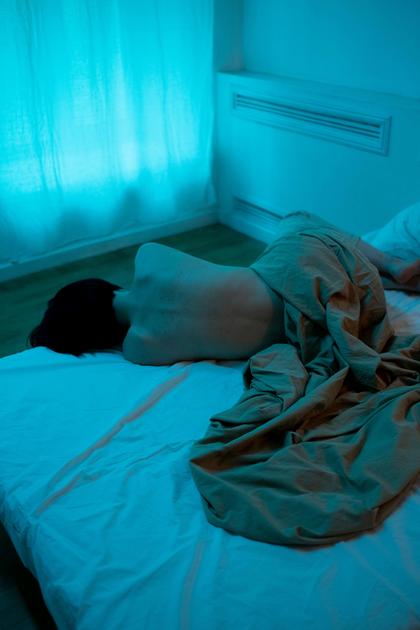As women enter menopause, many experience a myriad of changes, from hormonal imbalances to unexpected hair loss. It’s a journey often laden with unspoken challenges that can impact self-esteem and overall wellbeing. But understanding hair loss in menopause is crucial for finding the right solutions. In this article, we’ll dive into the hidden causes of hair loss and explore practical ways to address them.
The Calm Reset — 7 Days to Feel Steady, Kind & In Control Again - Only $2.99
Gentle guidance trusted by our community.
Understanding Hair Loss During Menopause
Menopause marks a significant transition in a woman’s life, bringing various physical and emotional changes. One of the less discussed aspects of this transition is hair loss. Many women experience thinning hair during menopause, which can be distressing and confusing. Understanding the causes and implications of this hair loss is essential.
During menopause, hormonal fluctuations can impact hair growth cycles. Hair may shed more than it grows, leading to noticeable thinning. It is crucial to recognize that this experience is part of a natural process, yet it can feel overwhelming.
The Role of Hormones in Hair Health
Hormones play a significant role in regulating hair quantity and quality. Specifically, estrogen and progesterone are vital for maintaining hair health. During menopause, the decline in these hormones can lead to hair follicle shrinkage, resulting in decreased hair growth.
Additionally, an imbalance in androgens, like testosterone, can trigger hair loss or increased facial hair in women. Recognizing these hormonal changes is the first step toward addressing hair loss during menopause.
Common Misconceptions About Menopausal Hair Loss
There are several misconceptions surrounding hair loss during menopause. A common belief is that hair loss is solely due to aging. While it’s true that aging affects hair, menopause brings specific hormonal changes that significantly contribute to this issue. Genetics also plays a role. Many women may not realize that hereditary conditions can be exacerbated during this time.
Another misconception is the idea that there is nothing that can be done about hair loss. Fortunately, various options exist to manage and potentially reverse hair loss.
Emotional Impact of Hair Loss on Women
The emotional toll of hair loss can be profound. For many women, hair symbolizes beauty, femininity, and self-esteem. Losing hair during menopause can lead to feelings of inadequacy, embarrassment, and anxiety. These feelings are compounded by societal standards that often equate hair with youth and attractiveness.
It’s essential to acknowledge these emotions. Feeling upset or anxious about hair loss is valid. Sharing experiences with supportive friends or family might help alleviate some burdens, reminding women that they are not alone in this struggle.
Nutritional Deficiencies and Their Effects
Nutrition plays a critical role in overall hair health. Deficiencies in iron, vitamins D, B12, and biotin can lead to hair thinning. A well-balanced diet is essential for nourishing hair follicles and supporting healthy hair growth.
Women experiencing hair loss should consider consulting a healthcare provider or a nutritionist to evaluate their diets and address any possible deficiencies. This step can be an effective way to promote hair health.
Lifestyle Changes to Combat Hair Loss
Simple lifestyle changes can significantly impact hair health. Regular physical activity can improve circulation and promote hair growth. Adequate hydration is also vital; drinking enough water helps maintain a healthy scalp.
Stress management is another crucial aspect. Stress can exacerbate hair loss, so incorporating practices such as yoga, meditation, or hobbies can provide relief. These changes can create a more conducive environment for healthy hair growth.
Effective Treatments and Solutions
Numerous treatments are available for women experiencing hair loss during menopause. Options range from topical treatments like minoxidil to oral supplements. Some women have also found success with laser therapy, which stimulates hair follicles.
Additionally, vitamins that support hair health, such as B-complex vitamins, and supplements that promote hair growth, like collagen, can be beneficial. Consulting with a healthcare provider can help identify the most appropriate course of action.
When to Seek Professional Help
If hair loss becomes excessive or is causing significant emotional distress, seeking professional help is advisable. Dermatologists and trichologists specialize in hair and scalp disorders and can provide tailored solutions.
Engaging in discussions about hair loss with a healthcare provider can lead to a better understanding of one’s situation and available treatment options.
Stories of Resilience: Women Overcoming Hair Loss
Many women have experienced hair loss during menopause but have found ways to cope and thrive. Hearing their stories can inspire hope and provide practical strategies. For example, some women share how adopting a new hairstyle or exploring wigs helped them regain confidence.
Support groups, whether online or in local communities, offer spaces for women to exchange experiences and encouragement. Knowing that others have triumphed over similar challenges can empower women to embrace their unique journeys.
A Path Forward: Embracing Change with Confidence
Embracing change during menopause can be daunting, but it also presents an opportunity for growth. By exploring available treatments, making lifestyle changes, and nurturing emotional well-being, women can navigate this transition with confidence.
Empowerment comes from knowledge and self-acceptance. Women are encouraged to take proactive steps towards managing their hair health, recognizing that they are not alone on this journey. If you want to find out how many women are resolving similar issues without heavy medications, see here.
It’s important to remember that every woman’s experience with menopause is unique. While hair loss can feel isolating, it signifies a natural transition. By sharing stories and supporting one another, women can cultivate a sense of community and resilience.
With patience and the right approach, it’s possible to improve symptoms and challenges surrounding hair loss. Many women have walked this path and emerged stronger—it’s time to discover how you can too.
The Calm Reset — 7 Days to Feel Steady, Kind & In Control Again - Only $2.99
Gentle guidance trusted by our community.







